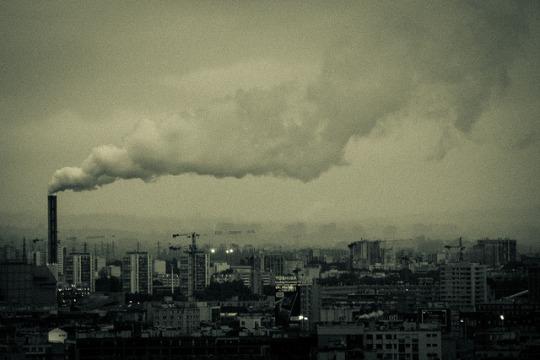This is a tricky argument and choice to make. If all countries lock into a percentage reduction in emissions, the approach, technology, strategies would be very similar, in our opinion. The greatest gains would come from shutting down coal-fired plants. If you allow different responsibilities across a range of countries, such obvious steps might not get taken.
We do think each blueprint for change must reflect that countries unique geographical location, natural resources available, industries that primarily drive jobs and commerce and grid systems, and must balance and protect the ability of all people to work and sustain their families with the obvious need to protect the planet and all forms of life sharing one eco life support.
Paris climate deal should reflect differentiated responsibilities

The developing countries' bloc of
Brazil, South Africa, India and China have underscored that the ambitious Paris
Agreement on climate change to be adopted later this year should "fully
reflect" differentiated responsibilities of developed and developing countries.(
NEW YORK: The developing countries'
bloc of Brazil, South Africa, India and China have underscored that the
ambitious Paris Agreement on climate change to be adopted later this year
should "fully reflect" differentiated responsibilities of developed
and developing countries.
Developed countries should take the
lead by undertaking ambitious emission reduction targets, ministers from the
BASIC (Brazil, South Africa, India, China) bloc said as they met for the 20th
Ministerial Meeting on Climate Change here over the weekend.
India was represented by Joint
Secretary in the Ministry of Environment, Forests and Climate Change Ravi
Prasad along with Brazil's Minister for the Environment Izabella Teixeira,
South African Minister of Environmental Affairs Edna Molewa and Special
Representative for Climate Change Affairs of China Xie Zhenhua.
In a joint statement issued after
the ministerial, the ministers underscored the need for the Paris Agreement to
address in a balanced manner all six elements identified in the Durban mandate
- mitigation, adaptation, finance, capacity-building, technology development
and transfer, transparency of action and support.
In this regard, they stressed that an ambitious outcome of the ADP (Durban Platform for Enhanced Action) should not focus solely on mitigation, but should also address the other elements in a balanced and comprehensive manner.
"With regards to mitigation, Ministers underscored the need for the provisions of the agreement to fully reflect differentiated responsibilities and distinct development stages of developed and developing countries, with developed countries taking the lead by undertaking ambitious, economy- wide, absolute emission reduction targets and providing finance and technology support to developing countries," the statement said.
It added that developing countries will also enhance their efforts, in the context of sustainable development, enabled and supported by finance, technology development and transfer and capacity-building from developed countries.
In this regard, they stressed that an ambitious outcome of the ADP (Durban Platform for Enhanced Action) should not focus solely on mitigation, but should also address the other elements in a balanced and comprehensive manner.
"With regards to mitigation, Ministers underscored the need for the provisions of the agreement to fully reflect differentiated responsibilities and distinct development stages of developed and developing countries, with developed countries taking the lead by undertaking ambitious, economy- wide, absolute emission reduction targets and providing finance and technology support to developing countries," the statement said.
It added that developing countries will also enhance their efforts, in the context of sustainable development, enabled and supported by finance, technology development and transfer and capacity-building from developed countries.

No comments:
Post a Comment